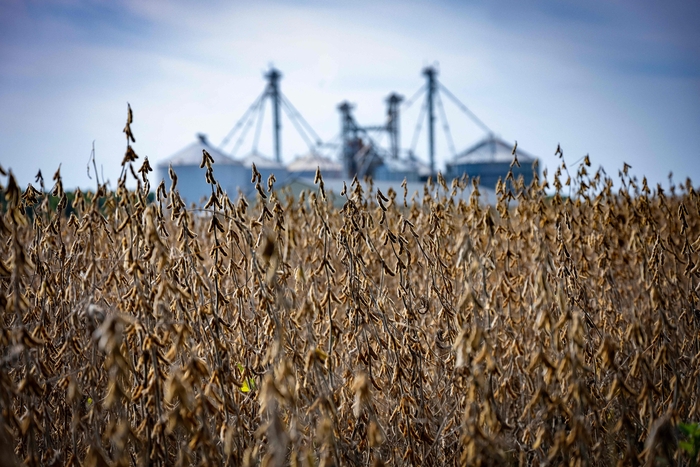U.S. Farmers ‘Stomping’ Ahead Of Harvest Due To Suspension Of Purchasing China’s Largest Importer, Suggests Emergency Support To Trump’s Government
 사진 확대
사진 확대 Soybean is ripening at Harborview Farm, where harvest is imminent, Sept. 23, 2025 in Rockhall, Maryland. AFP Yonhap News Agency
Trade negotiations between the U.S. and China have stalled, escalating into a “bean war.”
According to the Financial Times (FT) on the 26th (local time), the fall harvest season for U.S. soybean farmers began this month, but so far, there has been no sale or shipment to China. This contrasts sharply with China’s contract of 6.5 million tons this time last year.
China is the world’s largest importer of soybeans, which are used as feed for pigs, its national food, and is also the largest customer of U.S. soybeans. Using soybean purchases as a bargaining chip, China suspended all purchases of U.S. soybeans ahead of the fall harvest season.
With China’s sales blocked, soybean prices have plummeted in the United States, and harvested soybean supplies are piling up in warehouses. Under these circumstances, China is putting pressure on South American soybeans, such as Brazil, by significantly increasing imports of soybeans from South American countries instead of the United States. From January to August this year, Brazil shipped 66 million tons to China, the highest ever, accounting for three-quarters of total soybean exports.
The FT warned that China’s retaliatory measures could have devastating consequences for soybean farmers in the Midwest of the United States. There is also an assessment that the political impact could be significant because the region belongs to a key competing state that determines the victory or defeat of major elections such as the presidential election.
U.S. President Donald Trump hinted at emergency funding at the White House on the 25th, saying, “We will give some of our tariff funds to our farmers who will be hit until the tariff effect is in place,” but experts say this will also be insufficient to prevent China’s offensive.
In fact, even during the first trade war of the Trump administration, China diversified its imports to Brazilian soybeans instead of the U.S., and the U.S. has still not recovered its 20% market share that it gave to Brazil at the time.